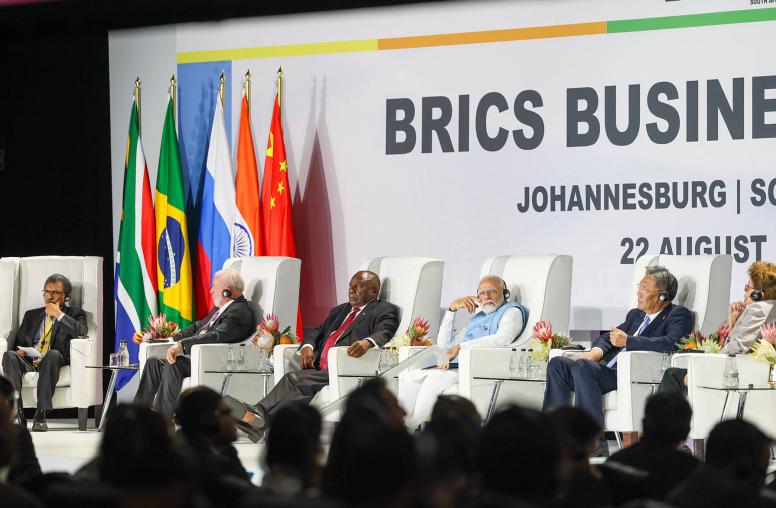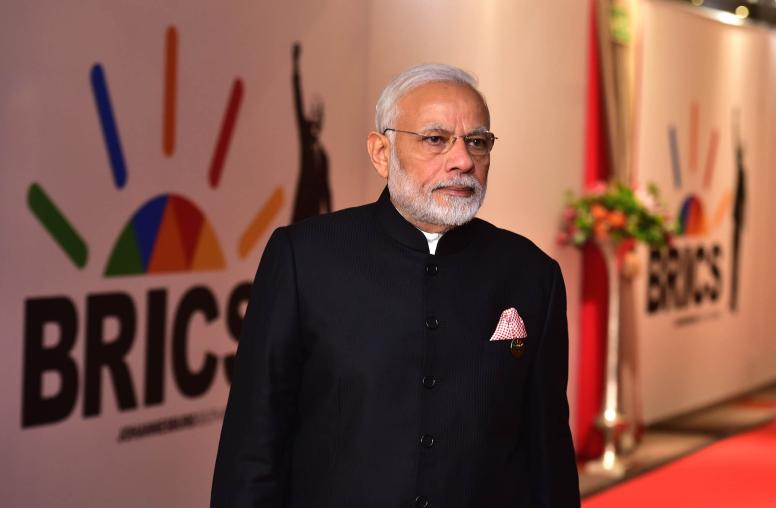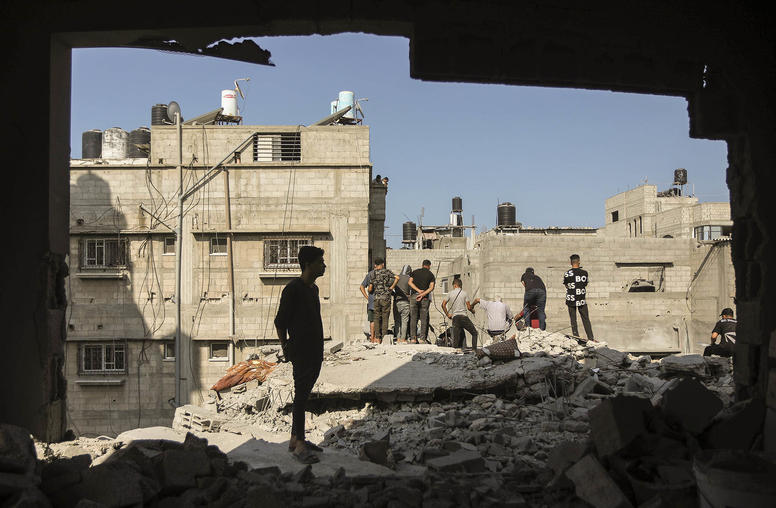Brazil and Colombia Need to Step Up on Venezuela’s Crisis
Could Lula and Petro prod Maduro into permitting a credible election? The answer could very well shape Venezuela’s future.
Developments in Venezuela over the past few weeks have provided reason for both deep pessimism and guarded hope that the country’s presidential election next year could help resolve its political crisis and advance a democratic transition.

On the one hand, the regime-controlled legislature moved to replace the members of the National Electoral Commission, which for now still includes opposition representation and has exhibited measures of independence. It also disqualified Maria Corina Machado, the candidate poised to win the opposition’s presidential primary, from holding office for 15 years. On the other, senior U.S. and Venezuelan officials have met secretly, even as the Venezuelan opposition’s negotiators have crafted a proposed deal by which Washington would lift some sanctions in exchange for meaningful steps by the regime to improve conditions for the election.
Whether such a deal is consummated or the regime proceeds with a Nicaragua-style election in which genuine opposition candidates are prohibited from competing depends largely on calculations being made by Venezuelan President Nicolas Maduro and officials close to him. Do they value international recognition and sanctions-relief more than they fear losing power?
Although the United States holds leverage in the form of sanctions on the Venezuelan economy and regime officials, Maduro might not trust U.S. State Department and National Security Council officials enough to reach and implement a deal. It is imperative, therefore, that governments that are in a better position to prod Maduro into permitting a credible election work to complement Washington’s efforts.
A Role for Lula or Petro?
There are two presidents in Latin America with the stature and standing to potentially fill that role: Brazil’s Luiz Inacio Lula da Silva and Colombia’s Gustavo Petro. The question is whether they are willing and able to try to influence Venezuela’s political direction.
Both leaders should have an interest in trying to resolve Venezuela’s political crisis, which has had an impact not only on their own countries, but on nations across the Americas. Maduro’s autocratic rule and disastrous economic policies have spurred 7 million Venezuelans to migrate over the past few years. Efforts to weaken Maduro’s hold on power — including sanctions on Venezuela’s oil industry, mass demonstrations and electoral boycotts by the opposition, the recognition of Juan Guaido as the country’s legitimate president and scheming with supposed dissidents in the Venezuelan military — have all failed.
The political opposition is now committed to competing in next year’s presidential election and holding a primary this October to choose its standard-bearer. But the dismantling of the electoral council and political disqualification of Machado were worrisome signs and should spur the governments in Brazil and Colombia to advocate for an even-handed electoral body and other accepted standards for free and fair balloting.
Unfortunately, inauspicious developments in Brazil and Colombia the past few months raise doubts about the capacity of either country to play a constructive role in Venezuela. In May, Lula received Maduro at a gathering of South American leaders in Brasilia and declared that Venezuela, where democratic institutions have been wrecked and political rights restricted, suffers not from authoritarianism, but an anti-democratic “narrative.” A few days later, a recording of a conversation in which Colombia’s ambassador to Venezuela alluded to illicit financing of Petro’s 2022 presidential campaign was leaked.
Lula called for free elections and alternation of power in Venezuela while campaigning for Brazil’s presidential election last year. Perhaps publicly praising Maduro in May was part of a strategy to publicly cultivate the Venezuelan leader, even as Lula privately prods him to allow a fairer ballot next year. But there is so far no evidence to support that charitable view of his most recent comments.
Colombia’s posture toward Venezuela has looked more promising. Petro — the country’s first left-wing president — publicly called for Venezuela to return to the inter-American human rights system, dropped his insistence that the U.S. lift sanctions unilaterally and hosted a conference in May to align international efforts to advance negotiations between the Maduro regime and Venezuela’s opposition. He also quickly criticized the revoking of Machado’s right to stand for office, a sanction Petro himself had once faced before his political rights were restored.
Colombia’s efforts might go by the wayside, however. Petro’s government is still reeling from the fallout from the leaked tape scandal, which erupted while he was already grappling with a stalled domestic agenda. It seems unlikely his notoriously chaotic government could independently mount a concerted effort toward resolving Venezuela’s internal problems. That said, if the Colombian Foreign Ministry’s work can be insulated from the scandal, it might be able to continue to play a helpful role.
If Not Them, Then Who?
For the time being at least, there do not appear to be other leaders in the region who could convince Maduro that steps like stacking the electoral board with regime supporters and prohibiting opponents from running undermine his own interests, because they guarantee the prolongation of U.S. sanctions and forestall any preelection economic boost he is hoping for.
Another leftist South American president, Chile’s Gabriel Boric, is in no position to make such a case to Maduro. Boric has established himself as the Latin American left’s leading critic of the Venezuelan regime; it is a valuable function, but one that deprives him of the ability to privately engage Maduro. Mexican President Andres Manuel Lopez Obrador might have been able to play a constructive role. But as an insular nationalist leader who has been undermining his own country’s democratic institutions, he has neither the standing to promote democracy in Venezuela nor an interest in doing so.
The lack of a prominent democratic leader to engage with Maduro in the coming months would be unfortunate, given the potential opening that exists to forge an agreement between the Venezuelan government and opposition. The opposition accepts that an electoral defeat of the regime will not necessarily force Maduro’s exit or result in prosecutions for the government’s corruption and human rights violations. Even hardline opposition figures privately acknowledge that they are prepared to offer guarantees to the government and armed forces to facilitate a political transition, consistent with the experiences of multiple countries in the region and around the world.
Balancing accountability for crimes with reconciliation and pragmatism is never easy. But negotiating an arrangement in Venezuela will be that much harder if Maduro is advised by allies like Russia and Cuba, rather than by a democratic government that he trusts.
Beyond some form of amnesty, leaders of the ruling United Socialist Party of Venezuela, or PSUV, will also want reassurance of the organization’s future in a democratic Venezuela. Although greatly diminished, the party founded by former President Hugo Chavez remains the largest in the country. The Chavista base, and the country, would be better served if the PSUV evolved in a social democratic direction along the lines of Petro’s Historic Pact coalition and Lula’s Workers Party.
To be sure, Maduro and his allies may very well decide that holding onto power by whatever means necessary is preferable to the risk of putting themselves in legal jeopardy. Disqualifying political opponents and staging electoral farces, as the regime in Nicaragua has done, might seem like a viable path in a world where nondemocratic actors like China and Russia help sustain autocrats.
But taking that route would condemn Maduro to continued Western isolation, something he claims to want to end, and leave him overseeing a sputtering economy and the draining of Venezuela’s population via migration. U.S. diplomats do not have the personal ties, worldview or ideological affinities to persuasively deliver that message to Venezuela’s leaders. Lula does, if he were inclined to act constructively. So does Petro, if he could get past his current political troubles.
Whether they or another appropriate leader embrace the role could very well shape Venezuela’s future.
This article was originally published by World Politics Review.



